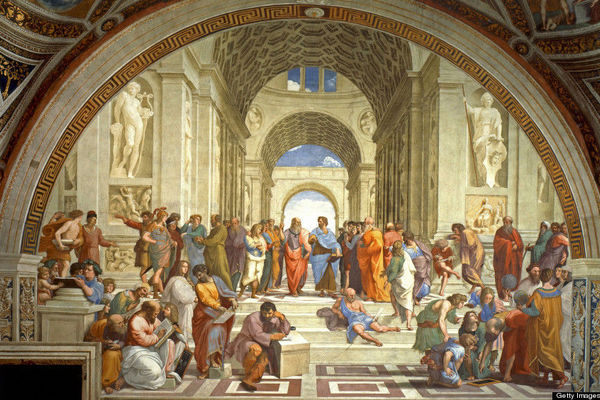You can learn to solve a differential equation. You can learn to ride a bike. But is happiness something that can be learned? And if so, how? This session will introduce the fundamental philosophical puzzle of God and the Good Life and discuss Aristotle’s answer to it.
Note: If you are just joining the class, welcome! Please read the opening message in the “Announcements” section of Canvas and complete all tasks from the “Welcome to GGL” page as soon as possible.
Read This:
Learn to Live Well (Aristotle, Nicomachean Ethics I.7, II.1-4)
Key Concepts:
- Eudaimonia
- Function argument
- Virtue
Watch This:
Pre-Class Questions
With each day’s reading, you will be given a set of questions to help you check your understanding of the material and prepare for class. Your responses are due on Canvas before class. See the syllabus for grading information. Your top 15 scores of the semester will count toward your final grade.
- In your own words, explain what Aristotle means by “eudaimonia”. In your own life, what is something you could do that would bring you closer to this goal? Be as specific as you can.
- In our reading, Aristotle says that each virtue is a “mean” that falls between two “extremes”, both of which are vices. What other examples can you think of? Name at least three virtues that are not discussed in the reading, and identify the vices or “extremes” that each one falls between.
Map to the Good Life
In an upcoming dialogue meeting, your dialogue leaders will introduce the Map to the Good Life project, which will consist of a series of activities where you’ll reflect on the broader philosophical and personal implications of material from class. For some of the activities, you’ll be asked to choose a prompt from the class website to address. The prompt below will be one of your options for Activity #1, which will be due before your dialogue group meeting on September 29 or 30. You don’t need to do anything with it until this activity is officially assigned on September 22/23.
Take the Big Five Personality Test. When you’ve finished, list your two highest-scoring and two lowest-scoring subfactors. (Each of these should have a score out of 20, not a score out of 120.) What advantages or challenges do you think someone with these results would have in cultivating moral virtue? Explain why. Then, based on your reflections, create a personal “virtue development plan”: Identify one specific virtue you would like to focus on cultivating in yourself, specific actions you can take to cultivate this virtue, a potential challenge you might encounter and a strategy for overcoming it.























